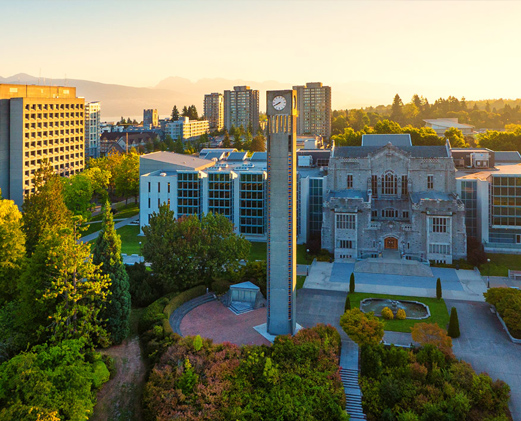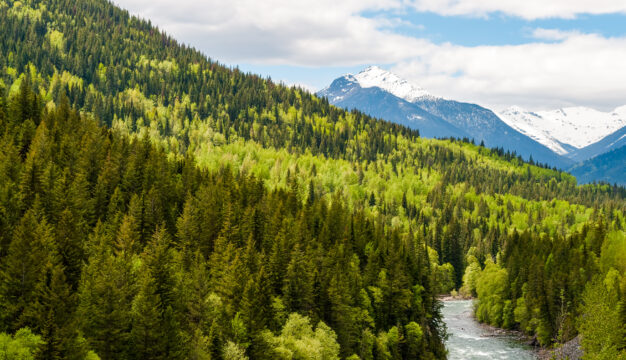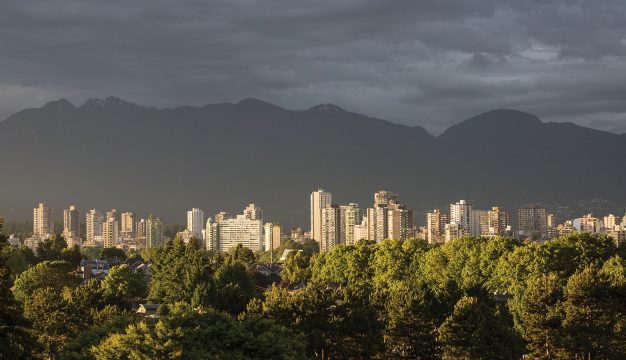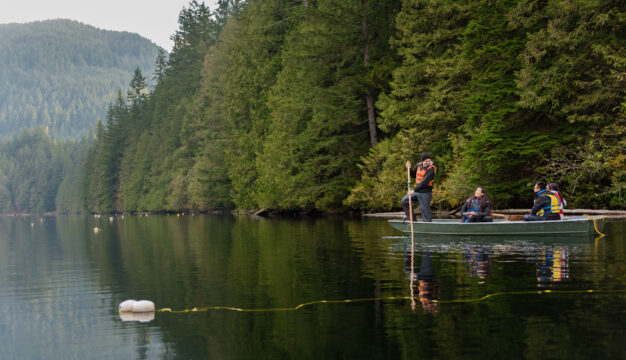
Are you interested in conserving our natural resources, finding ways to creating a sustainable future and exploring how to help fight climate change, protect the environment, and shape our future and planet? Or maybe you want to explore Indigenous ways of knowing, ecology, law and governance, economics, and community capacity building and become a land steward alongside Indigenous scholars, well-prepared allies, Elders, and knowledge keepers? Perhaps you’re interested in learning about urban ecology, sustainability planning, recreation, human well-being, and forest sciences and management?
Whatever your interests, we have a program for you. We’ve recently introduced three new options at UBC: Bachelor of Science in Natural Resources, Bachelor of Indigenous Land Stewardship, and Bachelor of Urban Forestry.
Read on to learn more about these programs and discover if they’re right for you.
Bachelor of Science in Natural Resources (Vancouver campus)
UBC’s new Bachelor of Science in Natural Resources degree focuses on the science, management, and conservation of natural resources. Students in the program take part in immersive learning experiences, from field schools and lab work, to co-op opportunities, and gain practical knowledge and skills that are critical for solving our most pressing natural resource challenges.
Students can choose from 6 majors, each focusing on unique fields of Natural Resource studies.
Bioeconomy Sciences and Technology
UBC’s Bioeconomy Sciences and Technology is the first program in Canada to provide a multidisciplinary and comprehensive education that’s focused on the scientific, economic, and policy issues related to the growing bioeconomy and creating a sustainable future. As a student in this program, you’ll gain a solid foundation for the innovative design and development of renewable materials, energy, and sustainable land-use strategies.
In UBC’s Conservation program, students learn how to balance the social, economic, cultural, and aesthetic considerations associated with the world’s natural resources so you can help fight climate change, protect the environment, and shape our future and planet.
In UBC’s Forest Management program, students explore the complexities of integrating multiple natural resource management strategies, encompassing range, recreation, timber, water, and wildlife. You’ll delve into the scientific foundations that underpin the management of forest resources, while tailoring your education with elective courses that emphasize biological, economic, social, or quantitative dimensions within this diverse field.
In Forest Operations, students explore the planning and execution of intricate harvesting operations. This program emphasizes the integration of biological, physical, and social sciences, supplemented by advanced courses in geotechnical engineering, forest road design, slope stability analysis, and efficient harvesting system evaluation.
With a focus on optimizing economic returns while minimizing environmental impact, you will develop proficiency in harvest and transportation system planning and scheduling.
In UBC’s Forest Sciences program, students study scientific principles related to forests, forest organisms, and plant and animal ecology. Forest Sciences is based on the principle that forests are complex ecosystems made up of thousands of living organisms and non-living components, and that our use of one part of the forest ecosystem can impact all of the others.
If you have an inquisitive mind and want to unravel the mysteries of nature, Forest Sciences could be for you. As a student in this program, you’ll improve your understanding of forest wildlife, fires, insects, diseases, soil, tree genetics, and forest regeneration.
In UBC’s Wood Products program, students gain a comprehensive understanding of wood science, business, and advanced manufacturing operations, while developing transferable skills in problem solving, communication, leadership, and teamwork.
Bachelor of Indigenous Land Stewardship (Vancouver campus)

UBC’s new Bachelor of Indigenous Land Stewardship degree will help train the next generation of land stewards alongside Indigenous scholars, well-prepared allies, Elders, and knowledge keepers in culturally appropriate ways.
The program provides Indigenous-led education taught by Indigenous scholars, well-prepared allies, Elders, and knowledge keepers and utilizes a highly relational, multi-disciplinary, multi-knowledge, and land-based system approach to learning while fostering Indigenous-led land healing and action-oriented reconciliation.
This interdisciplinary program has been created to bring together Indigenous students and students interested in becoming well-prepared allies to provide instruction in diverse areas such as Indigenous ways of knowing, ecology, law and governance, economics, communication, business management, research and data management methods, and community capacity building.
Bachelor of Urban Forestry (Vancouver campus)

UBC’s new Bachelor of Urban Forestry degree is for students who want to develop their passion for the urban environment and learn more about sustainability, green space planning, and nature in the city. Urban Forestry is taught in collaboration with the School of Architecture and Landscape Architecture and is the first undergraduate degree in Canada dedicated to the planning and management of urban green spaces.
If you’re interested in learning about urban ecology, sustainability planning, recreation, human well-being, and forest sciences and management, Urban Forestry could be for you.
As an Urban Forestry graduate, you’ll have the knowledge and skills required to meet the growing demand for urban forest managers and urban forest planners. Apply what you’ve learned to help manage urban forests, make cities more livable, and make informed city planning decisions. Pursue a career as a city forester, a municipal arborist, a green infrastructure planner, a parks and recreation manager, or an urban forestry consultant.
